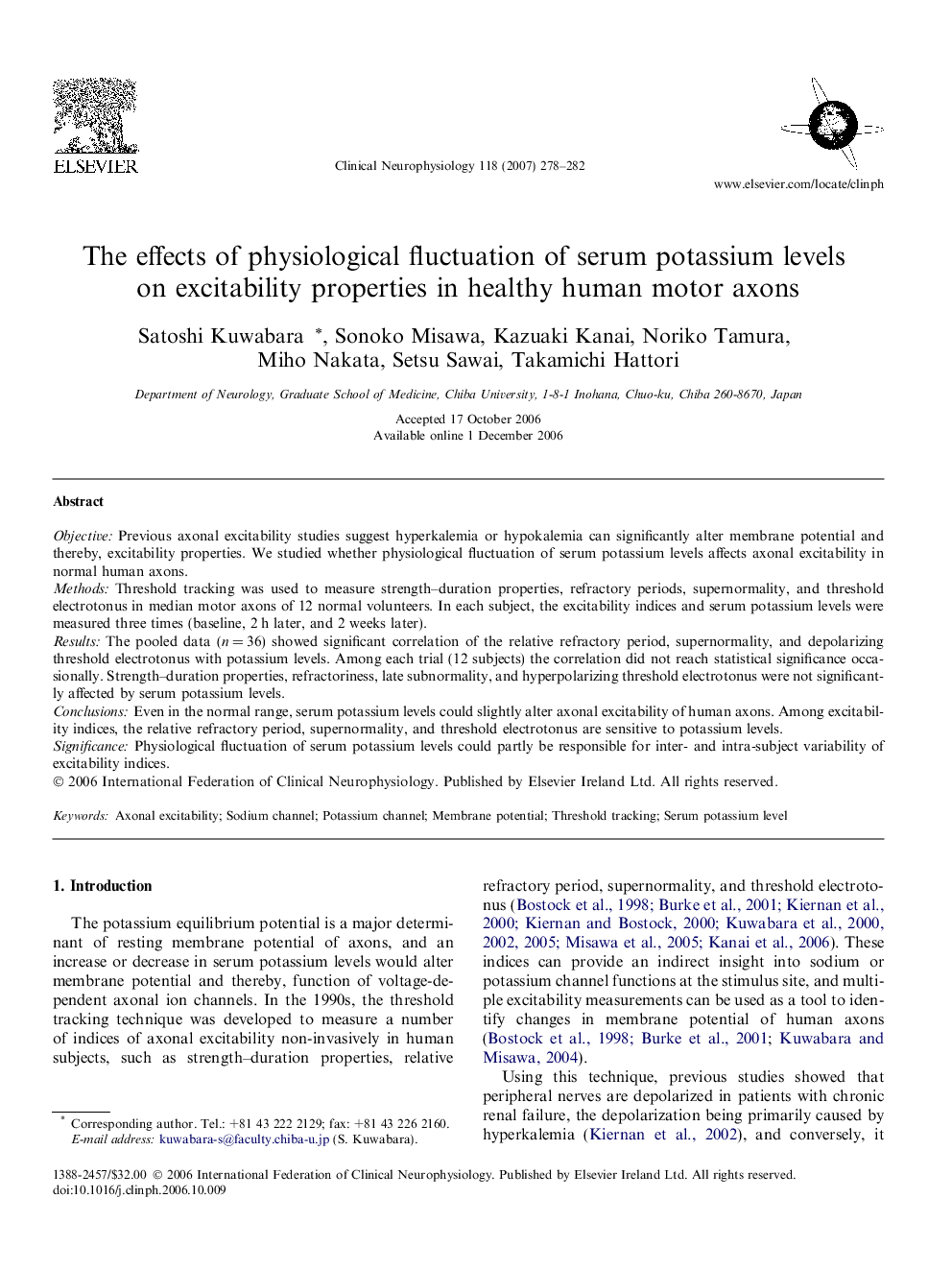| Article ID | Journal | Published Year | Pages | File Type |
|---|---|---|---|---|
| 3048008 | Clinical Neurophysiology | 2007 | 5 Pages |
ObjectivePrevious axonal excitability studies suggest hyperkalemia or hypokalemia can significantly alter membrane potential and thereby, excitability properties. We studied whether physiological fluctuation of serum potassium levels affects axonal excitability in normal human axons.MethodsThreshold tracking was used to measure strength–duration properties, refractory periods, supernormality, and threshold electrotonus in median motor axons of 12 normal volunteers. In each subject, the excitability indices and serum potassium levels were measured three times (baseline, 2 h later, and 2 weeks later).ResultsThe pooled data (n = 36) showed significant correlation of the relative refractory period, supernormality, and depolarizing threshold electrotonus with potassium levels. Among each trial (12 subjects) the correlation did not reach statistical significance occasionally. Strength–duration properties, refractoriness, late subnormality, and hyperpolarizing threshold electrotonus were not significantly affected by serum potassium levels.ConclusionsEven in the normal range, serum potassium levels could slightly alter axonal excitability of human axons. Among excitability indices, the relative refractory period, supernormality, and threshold electrotonus are sensitive to potassium levels.SignificancePhysiological fluctuation of serum potassium levels could partly be responsible for inter- and intra-subject variability of excitability indices.
